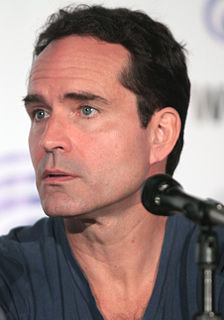A Quote by Cherie Priest
Related Quotes
I was perpetually grief-stricken when I finished a book, and would slide down from my sitting position on the bed, put my cheek on the pillow and sigh for a long time. It seemed there would never be another book. It was all over, the book was dead. It lay in its bent cover by my hand. What was the use? Why bother dragging the weight of my small body down to dinner? Why move? Why breathe? The book had left me, and there was no reason to go on.
The Hollywood stuff in the book tended to come later. I think it was because I was worried about leading with that stuff. I wanted to try to make sure that the other stories in the book were as interesting. I wanted to spend more time on them and craft them. The thing is, with writing, it's form or content.
The BBC has tended over the years to be broadly liberal as opposed to broadly conservative for all sorts of perfectly understandable reasons. The sort of people we've recruited - the best and the brightest - tended to come from universities and backgrounds where they're more likely to hold broadly liberal views than conservative.
In America, and no doubt elsewhere, we have such a tendency toward the segregation of cultural products. This is a black book, this is a gay book, this is an Asian book. It can be counterproductive both to the literary enterprise and to people's reading, because it can set up barriers. Readers may think, "Oh, I'm a straight man from Atlanta and I'm white, so I won't enjoy that book because it's by a gay black woman in Brooklyn." They're encouraged to think that, in a way, because of the categorization in the media.







































